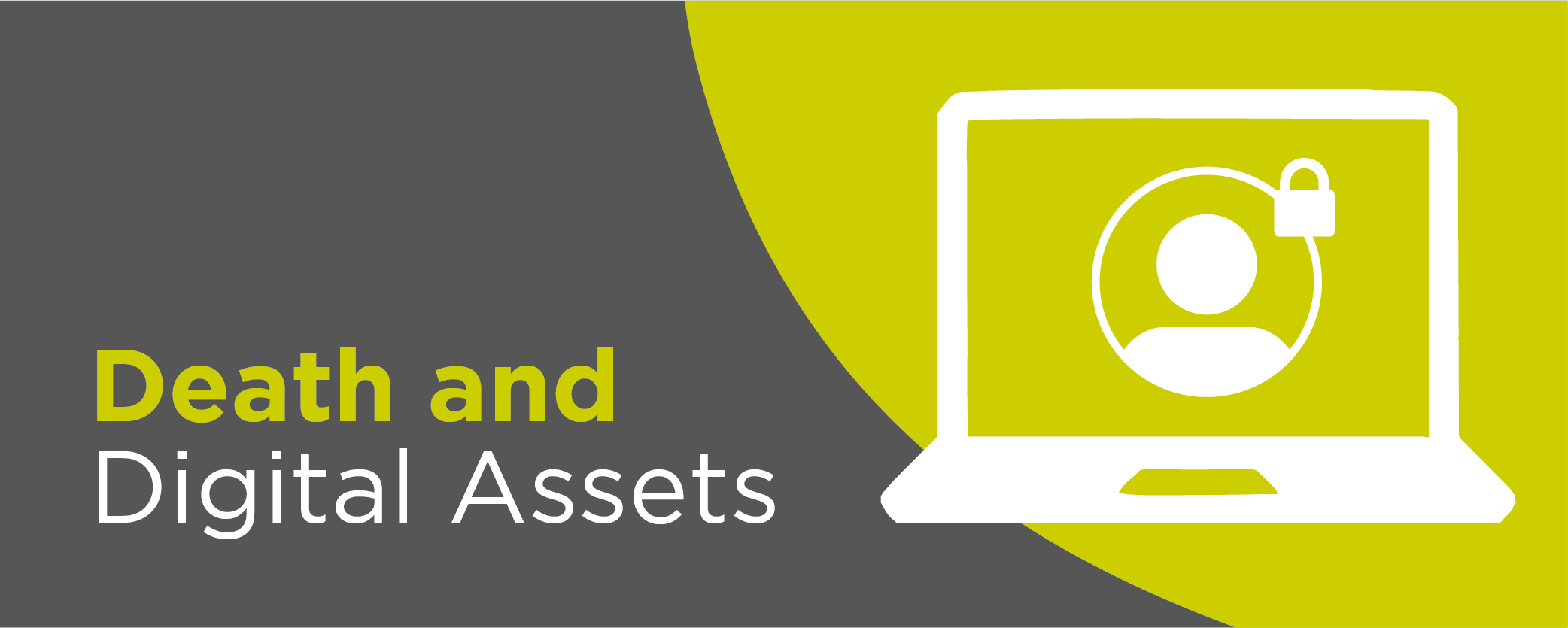- Basildon 01268244144
- Chelmsford 01245453800
- Colchester 01206217300
- London 020 4586 1280

We live in a world where most of us have digitally stored financial details, emails, music libraries, social media accounts, photos and other precious items that have monetary and emotional value to us and our loved ones.
When a loved one dies or becomes incapacitated, it can become more important than ever to be able to access digital assets. I only have to think about the thousands of photos and videos stored on my iCloud and it gives me a headache, let alone my various other online accounts.
Over recent years we have also seen an increase in popularity of cryptocurrency and if not dealt with correctly, we could end up inadvertently leaving our digital identities hostage to a fortune.
What happens to your digital life when you die?
At first, the simple answer will probably be: not a lot. Social media accounts in particular often have terms and conditions attached to the account which can make it incredibly difficult for families to gain access.
Internet service providers and social media companies alike do have tools in place that allow you to decide who can access your accounts should you be unable to do so yourself. I urge you to look into this and update your legacy settings.
There is currently no law in England and Wales that specifically addresses what happens to your personal data after death.
The Digital Devices (Access for Next of Kin) Bill passed its first reading in 2022, so change may be on its way in the future. I have seen experiences where families have had to consider court action to gain access to online accounts as arrangements were not put in place, so I very much welcome a law for this purpose.
How to secure your digital assets
I advise leaving a list of assets alongside your Will. Personally, I have a small document with details of accounts and account numbers stored in a very safe place.
I would suggest also making a list of your digital assets. Keeping a list of all your accounts and passwords means that family and friends will be able to access it when the time comes.
Remember, you are responsible for the handover of your digital assets. Be organised, keep an up-to-date detailed list, but then remember to tell someone you trust where to find the list! Who knows just how important this could be in the future.
Katie Hayden
I am a Chartered Legal Executive in the Wills, Trusts and Probate Team. My workload consists of drafting Wills, Lasting Powers of Attorney, Probate Applications, Trust documents together with the day-to-day management of Deputyship matters. I can also assist with Estate and Trust administration and associated Tax implications. I am based in our Chelmsford office, and am available for a free 15 minute chat over the phone on 01245 453837.



Comments